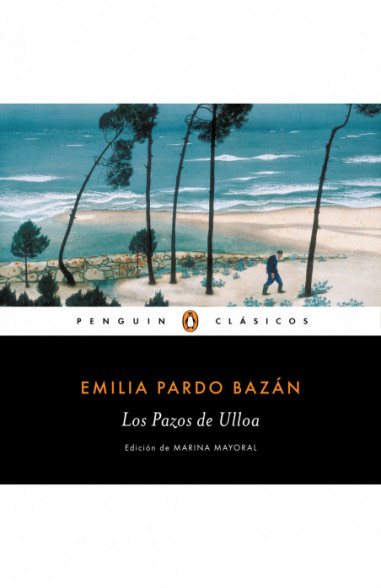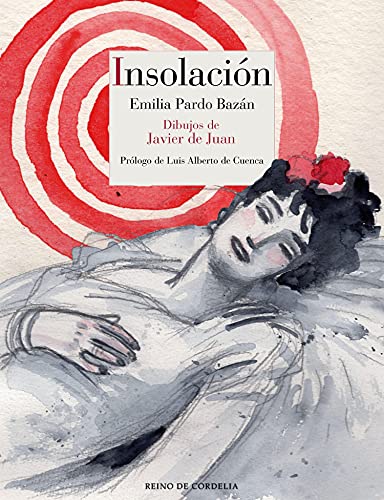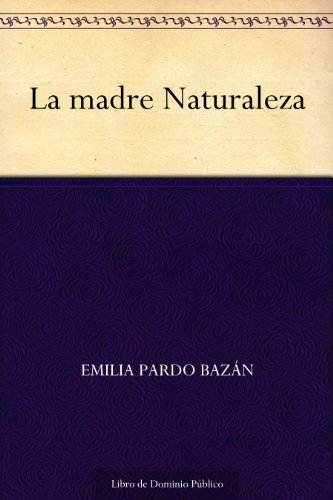Between the XNUMXth and XNUMXth centuries, two Galician writers gathered the necessary literary recognition of the feminine in the national sphere Emilia Pardo Bazán, whom I bring up today and Rosalía de Castro, whom I will talk about some other day in this same space.
The small steps of that necessary social equality have always started from the cultural spheres even before the political, or perhaps the former as the engine of the latter. Without that social conscience derived from the evident creative and intellectual equality, gradual recognition is less possible.
And it is true that in those years everything remained to be done for that effective equality in many aspects. But the path began to be traced towards the horizon thanks to writers like Emilia.
Beyond this necessary and slight historical staging, to speak of Emilia Pardo Bazán today is to look at a scholarly author, updated with the new European naturalist currents and who even broke (or rather complemented, because art should always be understood as a sum of perspectives) the previous romantic narrative viewing of her predecessor Rosalía de Castro.
It is true that the tandem that he composed with Benito Perez Galdos, always considered halfway between the literary and the loving, fruitful in both parts in plot synergies in which sometimes Emilia Pardo Bazán and other Pérez Galdós, undertook new literary undertakings with that point of realism that bordered the chronicle or costumbrismo to very different social strata, from its cradle aristocracy to the proletariat that appeared as a growing reality in Spain.
His literary career was not only focused on the novel. The most prolific Spanish writer of the XNUMXth and XNUMXth centuries also worked as a journalist, essayist, critic, of course a poet, but she also wrote theater, translated, edited books and collaborated in the vindication of feminism through culture.
Top 3 recommended books by Emilia Pardo Bazán
The pazos de Ulloa
Naturalism yes, but adjusted to the reality of Spain that still needed to look at a fully conscious realism to look at those new currents that sounded like echoes from neighboring France.
And this novel is that, a toast with Zola from the south of the Pyrenees, an assumption of the new breakthrough literary references with romanticism but with a revision for the peninsular imaginary.
Of course, a realistic novel like this is limited by the particular circumstances of its geographical location. Because the Galician pazos of 1886 supposed their own idiosyncrasy within the caciquil ideology, the illusion of old glories and the authentic decadence of a Spanish empire in constant bleeding.
And that's where we meet tough characters like those lands, dark at times like the leaden sky and exposed to a mirror between urban and rural that seems to end up reflecting different worlds.

Insolation
For a woman, daring to write according to which stories could carry considerable risks of thoughtlessness and repudiation. Freedom of thought and exposition of it has always been the subject of historical conflicts, but in the case of women the dilemma was raised to the nth power.
As soon as you immerse yourself in the novel, considering the introduction to the double yardstick between masculine and feminine in terms of approach to sex interesting, you understand the reason for this rejection attempt.
If, in addition, the pretended female will to speak about sex is completed with surrounding scenes about passions and direct loves, the matter could still get closer to moral scandal.
However, today, this novel becomes a feminist testimony in the most intimate settings of the late nineteenth century. Therefore, a highly recommended novel about something as human as it is buried from the female point of view of the time.
Mother nature
The best testimony that Emilia Pardo Bazán was not going to be intimidated by critics of this immersion in naturalism and the obvious realism of our country is this novel continuation of Los pazos de Ulloa.
The story follows in the footsteps of Julián, maintained as a link between the two novels under his condition of parish priest and from him the moral guideline for possible human ravings.
The appearance of Gabriel Pardo supports an action committed to the same realistic intention of the first part, focusing on cruder and sometimes disconcerting human relationships.



2 comments on "The 3 best books by Emilia Pardo Bazán"